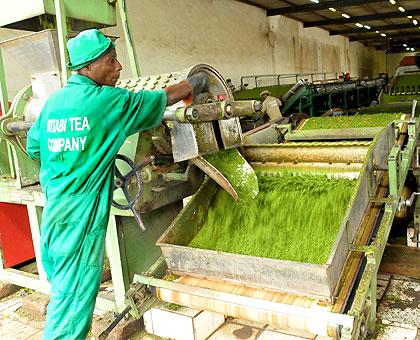Two days ahead of the Ninth Annual Leadership Retreat, the Institute of Policy Analysis and Research (IPAR), yesterday came up with possible areas of focus during deliberations.


Two days ahead of the Ninth Annual Leadership Retreat, the Institute of Policy Analysis and Research (IPAR), yesterday came up with possible areas of focus during deliberations.IPAR says areas of concern should touch on service industry, job creation, poverty reduction, education, as well as scaling up exports and Foreign Direct Investments.The local think-tank says that while a lot of work is being done to improve customer service in the country, a lot more remained, calling for more attention on the root causes of poor service delivery rather than focusing on the symptoms."Rather than focusing solely on the customer facing staff, the entire business/organisation should become customer focused so that the customer is everyone’s number one priority,” it says."Senior managers should also keep in mind that satisfied employees are more likely to provide a good service. The key issue here is focusing on organisational leadership for a customer centric organisation”.It reckons campaigns to improve customer service delivery would have greater credibility if attention was also paid to improving service delivery by government service providers.A previous IPAR report, published about three years ago, indicated that the country was losing as much as US$40 million annually due to poor customer care.On job creation, IPAR says that while the government has implemented a number job creation initiatives and income-generating initiatives for the youth and SMEs, its approach was too fragmented and insufficiently coordinated."This reduces the impact of such initiatives in generating adequate jobs to match the growing number of new entrants on Rwanda’s labour market”."There is a need for joined up thinking and a more coordinated approach to job creation if new entrants to the labour market over the next eight years are to be absorbed into productive work,” the think-tank said in the document it has shared with government."According to the 2009 NISR (National Institute of Statistics of Rwanda) population projections, the population is expected to increase by some 300,000 people every year for the next fifteen years, reaching 13.8 million by 2020,” she told The New Times.She added that over the same period, the International Labour Organisation (ILO) projects that the Rwandan labour force will increase by well over 40 percent – by almost two million."Apart from reducing the large backlog of the working poor, particularly in agriculture, the Rwandan labour market will have to absorb an annual increment of some 120-125 thousand new labour market entrants per year,” she observed.IPAR calls for a need for joined up thinking and a more coordinated approach to job creation if new entrants to the labour market are to be absorbed into productive work over the next eight years.It says research has shown there is insufficient recognition of the importance of household enterprises yet far more people are self-employed or work in a non-farm household enterprise than those employed in paid non-farm employment."Polices to support SMEs are not adequate to meet the needs of household enterprises. The vision 2020 target for poverty reduction implies a need to increase the number of productive employment opportunities, defined as employment that provides incomes above the poverty line, by almost 2.5 million,” it said. Meanwhile, it’s systems go for the retreat, which gets underway tomorrow at Gako, Bugesera District. It will close on March 7.The annual event is attended by the country’s top leaders to deliberate review progress over the past year and chart the way forward for the year ahead.President Kagame, who chairs the annual retreat, yesterday said on his Facebook page: "Looking forward to the 9th Leadership Retreat. There is no reason not to do more, and where we are experiencing challenges, we will figure out what needs to be done differently in order to improve the lives of all Rwandans and accelerate our development”.


